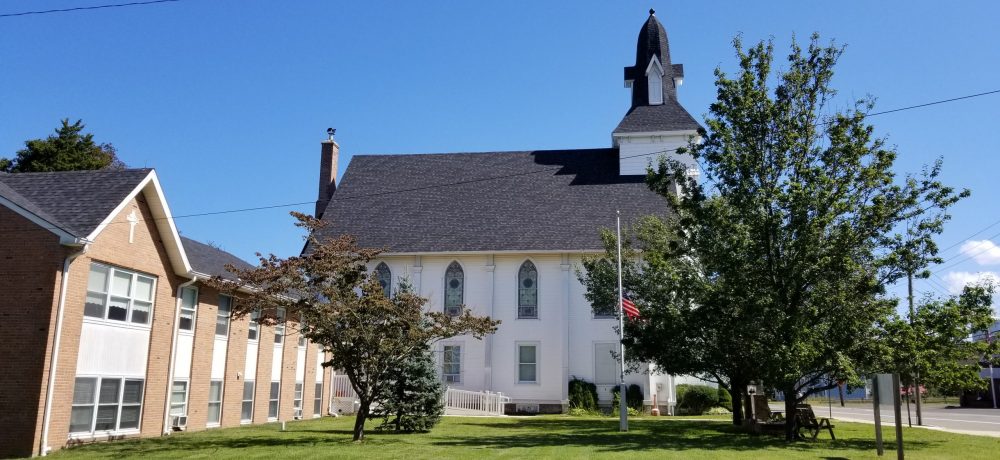Today Pastor Choi urges the congregation not to be a fool in the sight of God. He points out a three-fold error the rich fool made: fixing eyes on the life on earth only, setting his heart on the increase of wealth, and neglecting the welfare of others. He exhorts the believers to be rich toward God by living with an eternal life perspective, setting their heart on true riches of God, and giving to the poor.
Following is a summary of the sermon:
Don’t Be a Fool.
Luke 12:13-21 New American Standard Bible (NASB)
Covetousness Denounced
13 Someone in the crowd said to Him, “Teacher, tell my brother to divide the family inheritance with me.” 14 But He said to him, “Man, who appointed Me a judge or arbitrator over you?” 15 Then He said to them, “Beware, and be on your guard against every form of greed; for not even when one has an abundance does his life consist of his possessions.” 16 And He told them a parable, saying, “The land of a rich man was very productive. 17 And he began reasoning to himself, saying, ‘What shall I do, since I have no place to store my crops?’ 18 Then he said, ‘This is what I will do: I will tear down my barns and build larger ones, and there I will store all my grain and my goods. 19 And I will say to my soul, “Soul, you have many goods laid up for many years to come; take your ease, eat, drink and be merry.”’ 20 But God said to him, ‘You fool! This very night your soul is required of you; and now who will own what you have prepared?’ 21 So is the man who stores up treasure for himself, and is not rich toward God.”
Introduction
Some years ago, I was much into children’s literature all over the world: from Europe to Africa, from India to Korea. After reading scores of them, I began to notice certain common themes such as ‘don’t be greedy,’ ‘be honest,’ ‘honor your parents’ and so forth. One of the themes across the board was this: don’t be a simpleton. Don’t be a fool. I guess it is a universal lesson for humanity for centuries. Even the Bible talks about it. That’s our topic today: don’t be a fool.
Contents
Let me begin with a question for you.
Are You a Fool?
- It all depends. Some of us would deny that we’ve ever been a fool. Others may say that sometimes we are but most of the times we are OK.
- One thing is for sure: none of us wants to be a fool, either before people or in the sight of God.
- Definition of “fool”: person without much sense; stupid or rash person (Oxford Dictionary)
- Biblical Definition: person who says there’s no God. Psalm 14:1: “Fools say in their hearts, ‘There is no God.’” E.g. April 1—Fool’s Day.
- By the way, we all know that the belief in God alone doesn’t automatically make one wise. We can confess our faith in Jesus until our face is blue, but we can still be a fool. How? Here’s how: if we believe in Him with lips only not in action. The lip-service people in Christ are fools. You don’t have to take my word for it. Listen to Jesus (Matthew 7:24-27): 24 “Therefore everyone who hears these words of Mine and acts on them, may be compared to a wise man who built his house on the rock. 25 And the rain fell, and the floods came, and the winds blew and slammed against that house; and yet it did not fall, for it had been founded on the rock. 26 Everyone who hears these words of Mine and does not act on them, will be like a foolish man who built his house on the sand. 27 The rain fell, and the floods came, and the winds blew and slammed against that house; and it fell—and great was its fall.”
- Jesus, in today’s text, gives us another example of a fool. We’d better pay attention to this story; because it’s one thing if people call us a fool, but it’s quite another if God calls us “You Fool!” (Luke 12:20). We sure don’t want to be called by God a fool, right?
- Let’s check it out: the parable of the rich man. It is a simple story yet its message is powerful: don’t be a fool to God.Meet the Investment Guru
- I must say that the rich man in today’s story was quite smart in the worldly sense back then. He must’ve been the envy of the town-folks. I doubt they would ever call him a fool. In today’s standards, no one would call him a fool, either. Far from it. On the contrary, people would seek after his wisdom as a businessman; he would make a conference speaker on investment.
- Here’s why I believe so. This man did so well in his business (in this case farming). One year his land produced unusually good crops that would take care of him for the rest of his life (excellent hedge fund manager would he be at Wall Street today and we would invest with him any time, wouldn’t we?). He did so well that he needed a bigger storage space. So, he ended up tearing down old barns and building them bigger, setting up a sufficient retirement funds, and he was ready to enjoy many years of relaxation and fun (the joys of eating and drinking).
- The trouble I have with the story is this: why did God call him a fool in the end? Not just a fool, but “You FOOL!” (with an exclamation point). Why did God call him that way? The answer is found in verse 21: (he was a fool because) he stored up treasure for himself but was not rich toward God. May I say that his life was always about “ME” and never about “GOD”? His life was full of ME and none of GOD. I am not the only one who believes so. Fred Craddock (preacher and commentator) asserts that the man lived totally for himself, talked to himself, planned for himself, and congratulated for himself [Interpretation, Luke, p. 163]. That was the problem: a fool’s life is totally immersed with self and no room for God. To a fool, everything is about himself and nothing for God. Fools not only say that there is no God, but indeed they have no room for God in their lives.THE Rich Fool’s three-fold Error
- Here’s my humble analysis on the life of the rich fool.
- He fixed his eyes on life on earth only. He was well prepared for “many years” of his life on earth. Yet, he wasn’t interested or prepared for the life eternal that never ends. Remember: this life on earth is four scores if we are strong; soon it is gone and we fly away (Psalm 90:10). There are things that we have no control over. Death is one of them. The eternal life starts afterwards and lasts forever. The wise ones live everyday with eternal life in mind and prepare themselves accordingly. Fools don’t. They may gain the whole world yet lose their life (Luke 9:25). E.g. Movie–You can’t take it with you.
- Next, the rich man set his heart on the increase of wealth. A lot of us do, too. Did you know that there’s a warning from God’s Word on such attitude? Psalm 62:10 says “though your riches increase, do not set your heart on them.” Why? Because, the riches in the world can and will fool us with its deceitfulness (Mark 4:19). They rot; thieves get into them, too. They are fleeting and uncertain for sure (1 Timothy 6:17). E.g. Retiree from Lucent Technology lost his over-a-million-dollar assets overnight. Trusting in material possessions is like trusting in a paper umbrella in the storm. Listen to what Christ says in today’s text: “Beware, and be on your guard against every form of greed; for not even when one has an abundance does his life consist of his possessions.” (Luke 12:15).
- The rich fool was only interested in his own welfarethat he ended up neglecting the needs of others. The Other’s Welfare (T.O.W.)=100-mine. A trade-off. When mine is 100, then zero for others.Rich toward God (Be Wise)
- Let’s think about being rich toward God this time. If we take Jesus’ warning seriously, we all would desire to be rich toward God. How do we do this? By doing the following three things:
- Live your life with eternal life in perspective. Prepare for the future—eternal life—not just with lips but in action.
- Set your heart, not on riches, but on God and His kingdom. Seek God’s kingdom and His righteousness first (Matthew 6:33). Seek after true riches of God: glory, kindness, tolerance, patience, wisdom, knowledge, and grace (Romans 9:23, 2:4, 11:33, Ephesians 1:7). These are heavenly currencies.
- Increase the welfare of others by decreasing of your own. How do we do it? Only one way: give to the poor (Luke 12:33). The more we give, the richer we will be toward God. Giving and richness toward God is proportionate. Remember the welfare equation? [The Other’s Welfare (T.O.W.) = 100-mine]. By giving to the poor, we prepare purses in heaven that do not wear out; by doing so, we keep our “unfailing” treasures in heaven where no thief comes near or moth can destroy.John Wesley’s Way of Living
- Let me introduce a man who was rich toward God; his heavenly account is pretty solid. His name is John Wesley. He took Jesus’ word very seriously and methodically practiced it throughout his life. To him giving was living (and vice versa). He wasn’t a poor man. In fact, he was a wealthy man according to the worldly standards. He said, “Make all you can, save all you can, and give all you can.” “When I have money, I get rid of it quickly, lest it find a way into my heart.” E.g. His expenses for 60+ years remained the same. He pre-arranged to hire six beggars to be his pall-bearers at his death. That way, he spent his last £ 6, paying them £ 1 for each).
- Chart: John Wesley’s Way of Living
Year
Income (Annual)
Expenses
To the Poor
1
47.40 (Pounds)
44.24 (93%)
3.16 (7%)
2
94.80
44.23 (47%)
50.56 (53%)
3
142.40
44.24 (31%)
97.96 (69%)
4
189.60
44.24 (23%)
148.36 (77%)
Later
2,212.00
47.40 (2%)
2,164.40 (98%)
- Source: Wesley’s Giving (http://new-wineskins.org/blog/2010/03/john-wesleys-spending-habits/)
Conclusion
- I hope and pray that none of us would ever hear from God “You Fool!” in terms of our own wealth management.
- Rather, I pray that every one of us would hear from God saying, “Well done, my faithful servant! You are rich toward Me.”
- Go and do like John Wesley did.
- Let’s pray.

